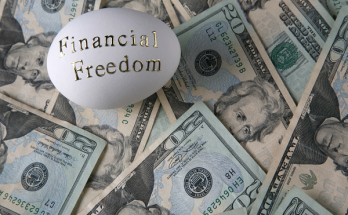Turbulences in the financial markets are often beyond the control of the investors. The price of a security can be affected by certain economic factors, like unforeseen natural disasters and wars that cause the economy to hit a slump, company news, and industry performances. However, there are certain cases when market disruptions result from threats that involve the investors.

Some market problems can be explained by investor psychology. Of course, a single investor can’t affect the entire financial market alone. It is when a massive number of people who overtrade and invest poorly that the market conditions become disorderly.
- When they engage in panic buying
Following the crowd is one of the biggest forces that affect the market prices. The widespread panic lies in the herd mentality – when a collection of individuals is overwhelmed by such emotion when they see their peers are behaving in a certain universal manner. An investor prone to the herd mentality tends to parallel his/her actions with everyone else’s, assuming they are all heading to the right direction.
As the its term suggests, “panic” buying is merely based on emotions, not on careful measurement of the fundamentals. You see a stock increasing value and everyone’s buying it so you hop onto the bandwagon. You are afraid of being “left out” if a purchase is not made immediately. The problem is when you rush, you tend to forget checking the background of the company you’re investing in. As a result, it reduces the supply of the goods or securities in the market, while driving the price up even higher.
- When they engage in panic selling
Or should we call it, the “end of the world” syndrome.
As opposed to panic buying, the confidence of investors in this one is fading. The market or stock starts declining. People act like it’s never happened before. Fear then arises in investors. They start to think that the market isn’t as strong as they initially expected so they have to sell their shares immediately before the market wipes out what’s left of their retirement funds.
Wide-scale selling of an investment causes a sharp decline in price. People just want to get out of the investment, with little to no regard for the price at which they sell. Almost every crash in the market is caused by panic selling, so make sure to always do your due diligence before making big decisions.
- When they contradict the rule of prudence
There are times when the investors’ losses can be traced back to their poor choices, not unseen and inevitable forces of evil they tend to blame when things go against them.
Many investors can become risk averse (someone who stays away from high-risk stocks and forego higher returns ) when chasing gains and can become someone who loves risk when avoiding loss. These moves contradict every rule of prudence to which the market ascribes.
- When they trade emotionally, not skillfully
“The more you lose, the larger your gain should be to meet expectations.” This is what gamblers believe in. Some investors are gamblers, relying on rewards that come from luck rather than skill.
Associated with this thinking is one of the deadly sins – pride. Investors become victims to both the strong desire to gain something out of their time and effort, and the aversion to admitting they’re wrong, they lose, and they should move on.
- When they get hit by fraudulent companies
Investing in a stock takes not only a lot of research but a lot of assumptions as well.
There are companies that lie on their balance sheets – they might be guilty of faking news releases on earnings and profits, overstating income reports, and inflating revenues. Other companies are engaged in some scandals. Even when a company is honest with investors, a related scandal or previous rumor about the corporation can weaken the price of the share.
- When they become afraid of foreigners
Xenophobia, or the extreme fear of strangers or foreigners, also work in finance. Investors have the natural desire for stabilty, and oftentimes, they find stability in things that are familiar and close to home – the domestic companies. The more important thing about investing, however, isn’t familiarity but value.
Again, herd mentality. When everyone thinks domestic companies are more stable and they all try to buy in, the stock market goes up to the point of being overvalued. This cause a bubble, or an economic cycle characterized by the rapid escalation of asset prices followed by a contraction.
If you see a company that appears to look new or foreign, but its balance sheet looks great, you shouldn’t close the doors to a possible investment.
Author Bio: Sophie Harris is one of the resident writers for FP Markets, a CFD and Forex Trading provider in Australia with over 12 years industry experience serving global clients. Writing informative content about business and finance is her cup of tea.



